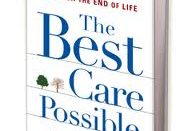How do you choose a doctor? Perhaps you start with a recommendation from a friend or a trusted physician, then you look at factors such as training, experience, board certification, access, online reviews and of course that vital issue, how well you like the doctor when you meet him or her. Tough thing, picking a person you barely know to whom you trust health and life. To this list, I would like to add a new critical skill; how well does your doctor play with others?
I met a patient the other day who was deciding whether to use me as his oncologist. As we talked at length about his case, focusing on my experience with his particular cancer problem, about which I have significant knowledge, we got along very well. Than, he surprised me with a zinger of a question. He asked, “What is the culture of collaboration in your group?”
Truth be told because I have never before been asked by a prospective patient to rate the internal dynamics of my partners and me, this was a unique query. I do not believe most patients consider teamwork in choosing their caregivers. Patients connect with one central physician and expect that person to direct their care. The idea that you are hiring a group of doctors, even if most of the time you will be working with a single clinician, is something most do not consider.
Nonetheless, in thinking about the “culture of collaboration,” this patient has a point. Collaboration within your doctor’s practice and by your doctor with other physicians in your community can determine the quality of medical care you receive. As with lessons learned in kindergarten, if your doctor does not play well with others, your medical care may be in trouble.
First, unless your doctor is truly Superman and dedicated to his patients beyond the point of reason, he cannot work 24/365. Eventually there comes a day when he is not in the hospital or office and he needs colleagues to cover his patients. Those colleagues must share his vision of medical decision-making, patient communication and have a similar grasp of the latest literature, otherwise when he is away radical and uncomfortable changes may occur. Covering doctors need a clear understanding of what the primary doctor wishes for each patient, which requires skilled and practiced communication.
Next, your doctor needs fellow physicians with whom to review cases. He or she must have the time and opportunity to discuss complex decisions. That means your doctor needs to be able give nonjudgmental criticism, and receive advice in a non-defensive manner. When lives and emotions are on the line, this is not easy. Some doctors tend to isolate themselves and avoid criticism, resulting in substandard care.
Finally, the only way for a doctor to really know the skills and abilities of other doctors is by working with them closely. Therefore, the quality of physicians to whom you will be referred by your primary doctor is dependent on the relationship he has built with them. Contrary to the idea that doctors tend to protect each other and form exclusive cliques, most doctors focus on quality and will shy away from a physician who they observe providing substandard care.
All this begs the question, how did I answer the patient who asked, “what is the culture of collaboration in your group?” The seven of us have worked closely together for many years, resulting in thousands of interactions and a deep understanding of each of our ideas and goals. We depend on a spirit of positive direct counsel and support, telling it like it is, especially when we believe one of our colleagues is wrong and we hear that criticism as positive correction. Key to this is that even in the worst of times, such as occur in all marriages, we treat each other with respect. Most importantly, we agree that a compassionate, academic approach, with patient need always first, is the core to our practice. For me and us, this patient’s question was easy to answer.
I have never before considered medical culture as an important factor in choosing a doctor, but I am now a fan. As I am not certain how to screen for this social skill, until someone figures out a teamwork rating system, I would suggest being direct and just ask. “Do you discuss cases with your partners?” “How do you cover each other on the weekends?” “How long have you been together?” “What do you, as a doctor, look for in other doctors?” “What is your culture of collaboration?” And finally, “Is there is a unifying philosophy that the doctors in your practice share? What is it?”







2 Comments